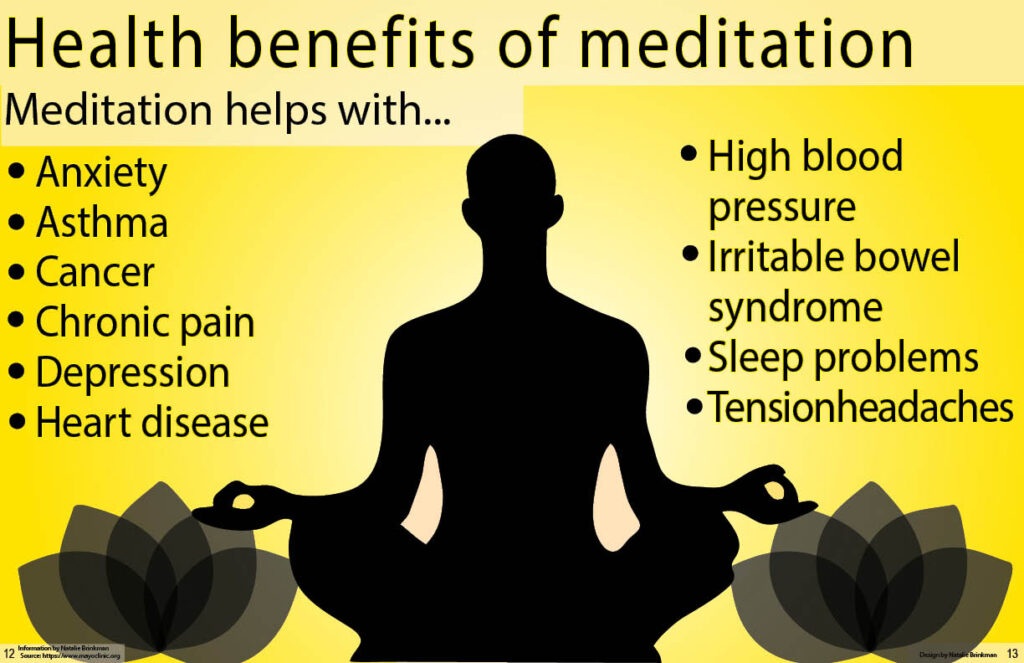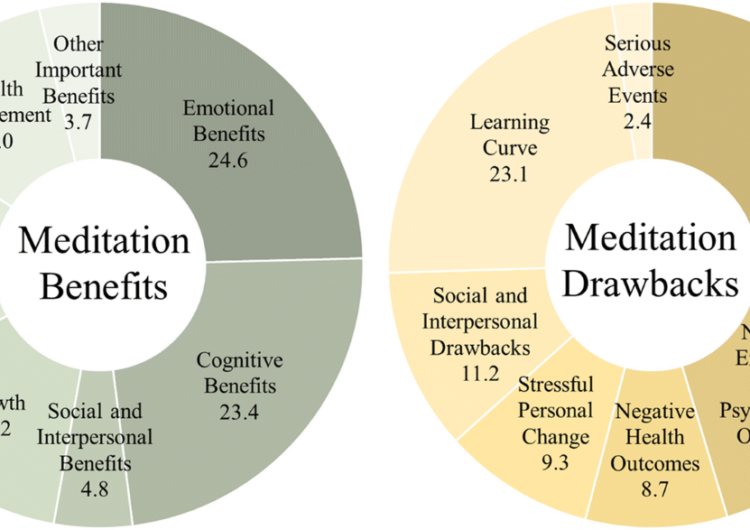Meditation has been practiced for thousands of years, with roots in various spiritual and philosophical traditions worldwide. In recent decades, modern science has turned its attention to meditation, revealing a range of profound benefits for both mental and physical well-being. Here, we’ll explore how meditation can positively impact various areas of life, offering a path to a healthier, more balanced self.
1. Reduces Stress and Anxiety
One of the most well-documented benefits of meditation is its ability to reduce stress. Practicing meditation encourages relaxation by slowing down breathing, lowering blood pressure, and reducing cortisol levels (the hormone associated with stress). Studies have shown that individuals who meditate regularly experience a significant decrease in anxiety symptoms, helping them respond to stressful situations with calm and resilience.
2. Enhances Emotional Health
Meditation can improve emotional well-being by fostering positive emotions. Techniques such as mindfulness meditation help people become more aware of their thoughts, allowing them to manage negative emotions like anger, frustration, and sadness. Practices like loving-kindness meditation, where individuals focus on developing feelings of compassion and kindness, have been shown to increase happiness and empathy, supporting healthier and more positive relationships.
3. Improves Focus and Concentration
In our fast-paced, distraction-filled world, maintaining focus can be challenging. Meditation trains the brain to focus on the present moment, enhancing attention and concentration. Studies have indicated that even short sessions of meditation can increase focus and attention span, making it easier for practitioners to stay engaged with tasks and be more productive.
4. Increases Self-Awareness
Meditation, especially mindfulness and introspective practices, helps individuals gain deeper insight into their thoughts and behaviors. This increased self-awareness can lead to better self-understanding and a greater sense of control over one’s mind and emotions. Some forms of meditation even help identify harmful thought patterns, enabling individuals to replace them with more positive and constructive ones.
5. Promotes Better Sleep
Meditation can also contribute to better sleep quality. Techniques like guided imagery, mindfulness, and progressive muscle relaxation can help calm the mind, making it easier to fall asleep and stay asleep. Meditation has been particularly helpful for those dealing with insomnia, as it reduces overthinking, which is a common cause of sleeplessness.
6. Strengthens Memory and Cognitive Function
Meditation has been shown to boost memory and overall cognitive function. Mindfulness meditation, in particular, increases the brain’s grey matter density, especially in areas associated with memory, learning, and emotional regulation. This improvement in memory and mental clarity is beneficial for people of all ages, especially as cognitive functions tend to decline with age.
7. Supports Physical Health
The physical benefits of meditation go beyond relaxation. Regular practice can help reduce blood pressure, improve heart health, and even strengthen the immune system. Meditation encourages deeper breathing and relaxation, which can reduce tension and promote a healthier body. Studies have also shown that meditation can help manage chronic pain by changing the way people perceive and respond to pain.
8. Promotes Kindness and Compassion
Loving-kindness and compassion meditations are designed to enhance empathy, kindness, and altruistic behavior. These practices cultivate an attitude of compassion, making individuals feel more connected to others and more likely to act with generosity and patience. This heightened compassion can lead to improved relationships and greater emotional fulfillment.
9. May Slow Aging
Emerging studies suggest that meditation could slow down biological aging. Meditation helps reduce stress, a known factor in aging, and protects the integrity of DNA by increasing telomere length. Telomeres, the protective caps on the ends of chromosomes, naturally shorten with age, but meditation appears to slow this process, potentially extending longevity.
Getting Started with Meditation

Meditation is accessible and can be done anytime, anywhere. Beginners can start with just five minutes a day, focusing on their breath, observing thoughts, or listening to a guided meditation. Over time, as practice deepens, the benefits will likely become more evident.
Meditation offers transformative benefits that can enhance both mental and physical health, enriching various aspects of life. Whether looking to reduce stress, improve focus, or simply find peace in a busy world, meditation provides a powerful tool for personal growth and well-being.


